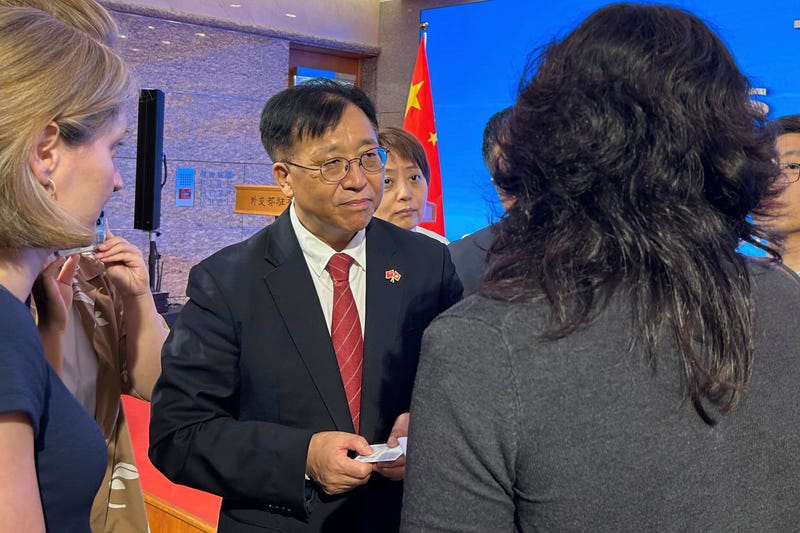
HONG KONG (AP) — Beijing's top diplomat in Hong Kong met with the city’s new U.S. Consul General this week to warn her against interfering in the territory’s internal affairs, his office said in a statement Thursday.
Cui Jianchun, commissioner of the Hong Kong office of China's foreign ministry, met with Julie Eadeh on Tuesday to express concerns about her conduct, the statement said.
Eadeh, who took up the new role in August, appeared to have angered Beijing for reportedly inviting pro-democracy figures to events. Beijing’s office overseeing Hong Kong affairs reposted articles from pro-Beijing media outlets that criticized her moves.
Cui laid out “four don'ts” for Eadeh, asking her not to meet people she “shouldn’t meet with,” not to collude with “anti-China forces,” not to assist or fund activities that might undermine the city's stability and not to interfere with national security cases in Hong Kong.
Cui "urged Eadeh to abide by fundamental norms governing international relations including non-interference in domestic affairs and make a clean break with anti-China forces,” the statement said.
The U.S. State Department on Thursday said: “U.S. diplomats represent our nation and are charged with advancing U.S. interests globally, which is standard practice for diplomats around the world, including in Hong Kong.”
China's tough stance underlines the ongoing tensions between Beijing and Washington over Hong Kong affairs, in addition to friction over trade, technology and Taiwan.
In the latest article reposted by Beijing's office on Hong Kong affairs on Saturday, Eadeh was described as a promoter of a “color revolution,” a term referring to a mass protest movement seeking regime change.
It mentioned her meeting with pro-democracy activists Joshua Wong and Nathan Law during massive anti-government protests in 2019, alleging the diplomat had close links to “black violence,” a term used by pro-Beijing media outlets and officials to refer to the protests.
Another article took issue with her inviting former Hong Kong official Anson Chan and former Democratic Party chairwoman Emily Lau to her events.
The former top official in the city drew criticism from pro-Beijing politicians when she met with then U.S. Vice President Mike Pence in Washington in March 2019, before the mass protests erupted.
Chan has kept a low profile since China imposed a 2020 national security law that crushed the city's pro-democracy movement.